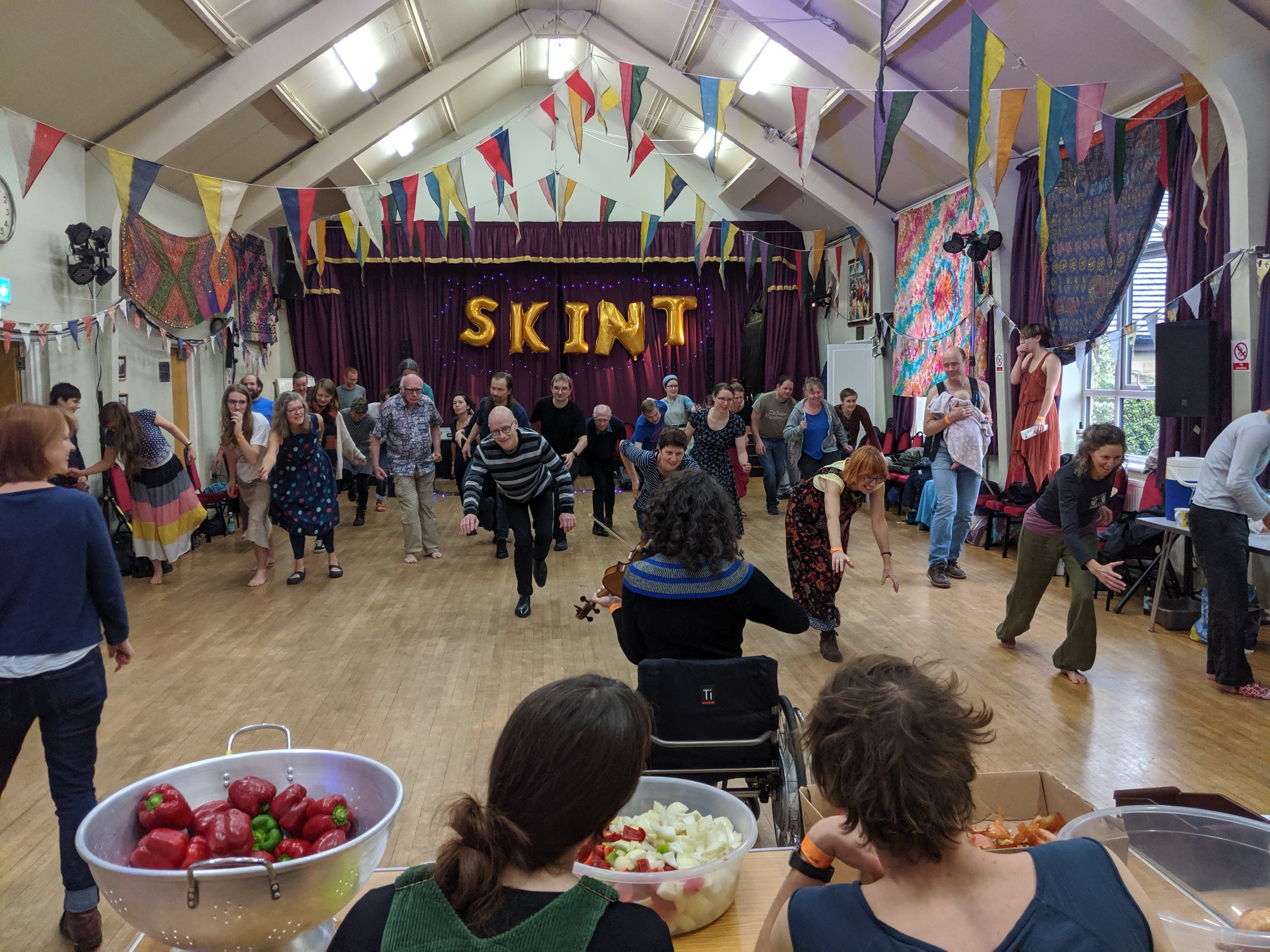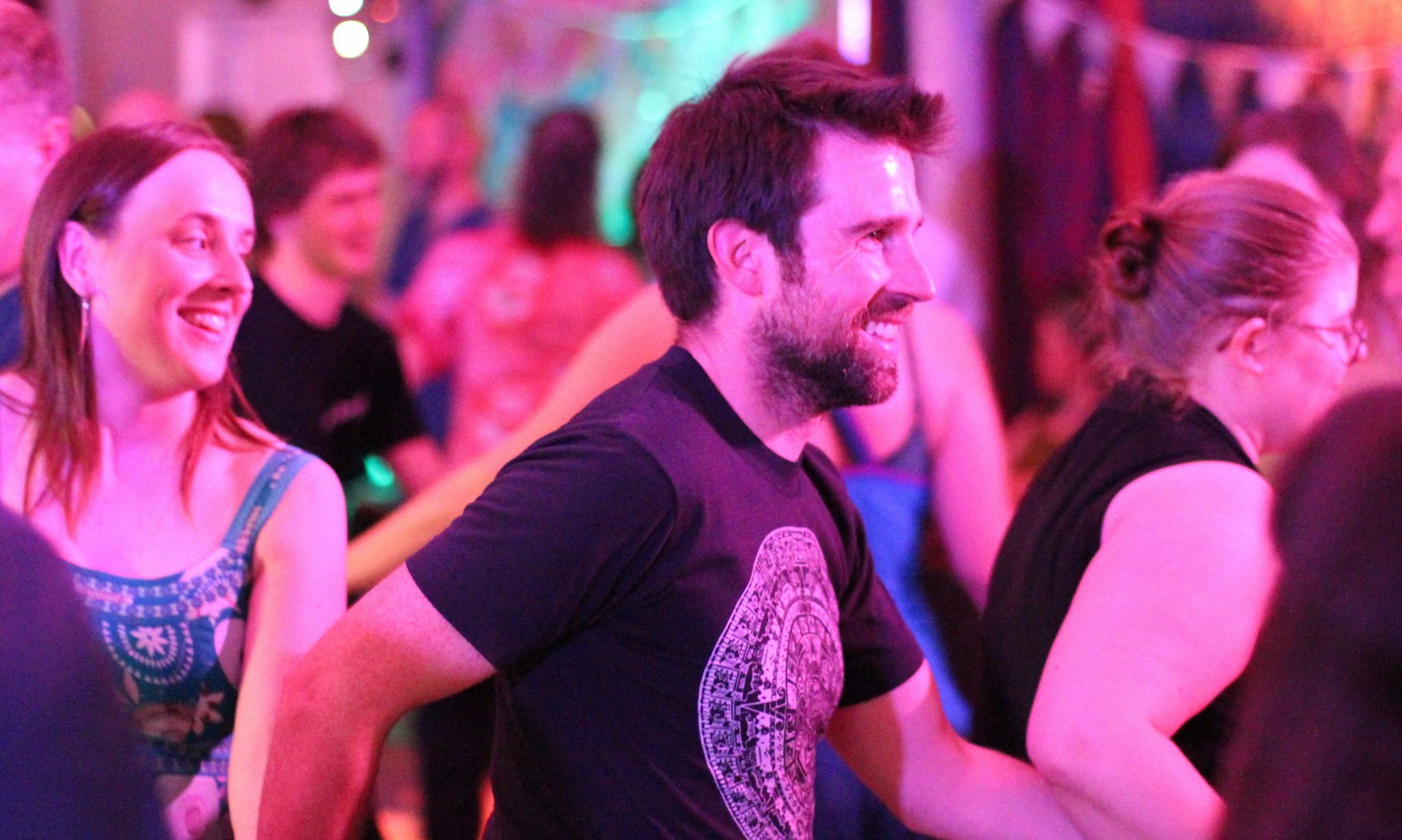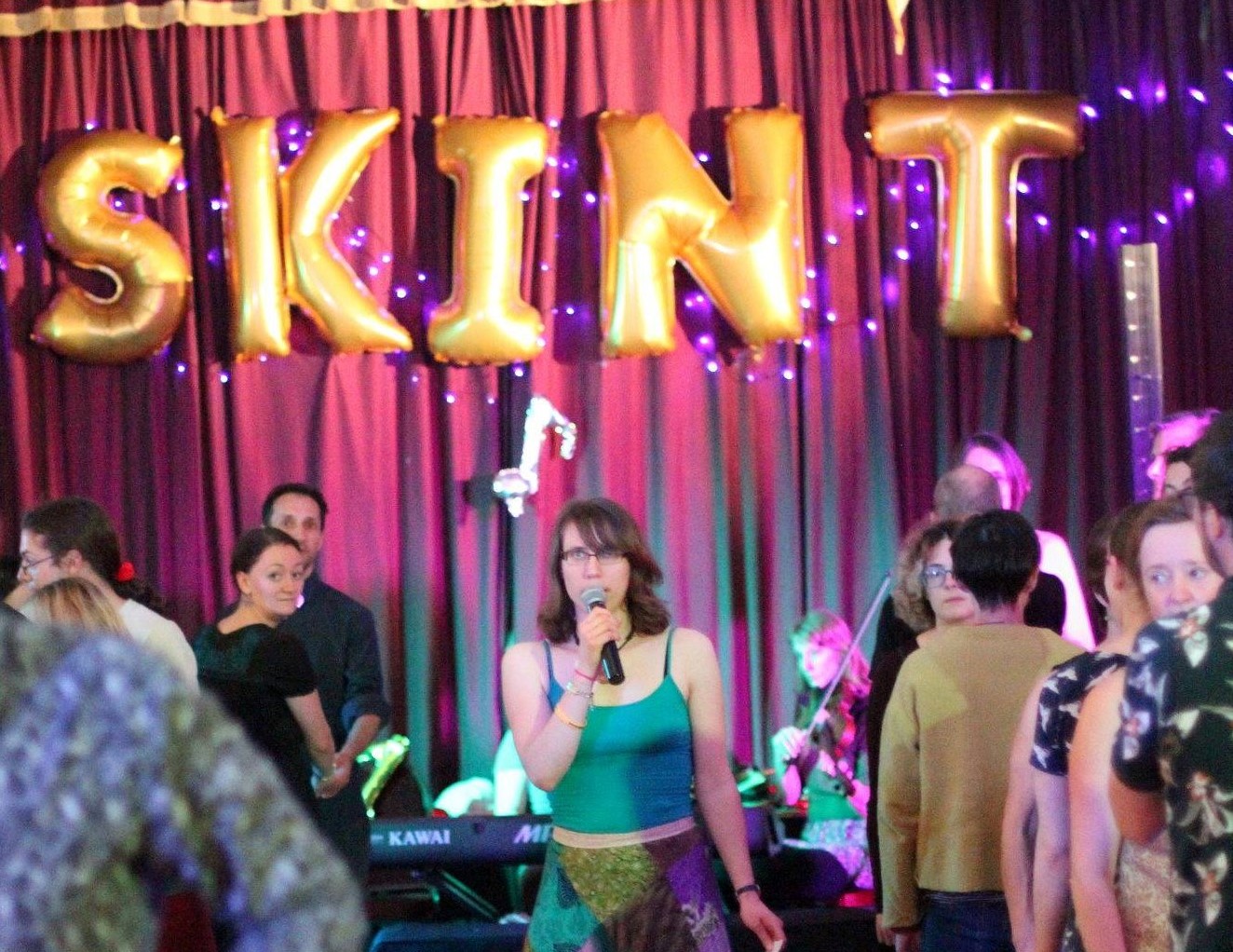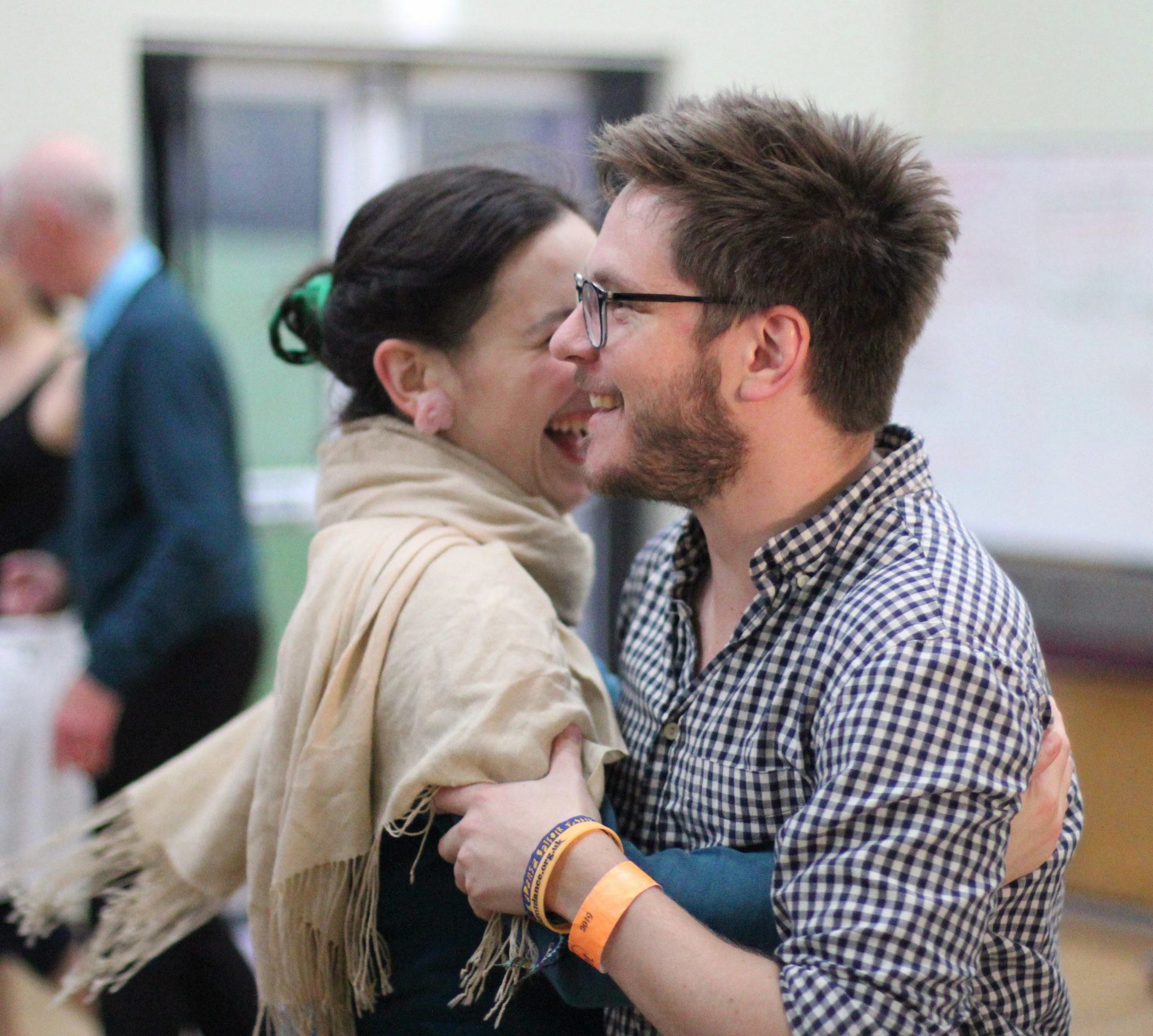Get Involved
So you want to come to Skint? Whether you’ve never missed one or it’s your first time, we’d love to welcome you.

What is Skint?
Skint is a weekend of international music and dance, held each year in Derbyshire, England. One of the main aims of Skint is to make European folk dance and music accessible to all, particularly to those who may be unable to afford festivals in the UK or abroad. You can read more about our aims in our constitution.
Skint is a very easy-going and friendly festival. During the day there are workshops for dancers and musicians, suitable for both complete beginners and the more experienced. The bals in the evening feature music and dancing from a variety of European traditions, (e.g. France, Scandinavia, England, Eastern Europe) much of which will have been taught earlier in the day.
Skint is open to all, regardless of age or experience. You just need an interest in European folk music and dance and a willingness to get involved!

Volunteering
Everyone at Skint pitches in to ensure the smooth running of the festival. When you first arrive there will be a volunteering sheet and you'll sign up to help in one or two tasks. These include things like getting the tables ready for lunch, preparing the food, tidying the hall, and other such things
All of our workshops and concerts are taught and played by volunteers as well. When you apply for a ticket we'll ask you if there's anything that you would like to share with the festival.
No-one is paid, and the committee pay the same amount to attend as other attendees.

Children
Children are very welcome at Skint. We seek to provide various activities to keep them entertained however we cannot take any responsibility for looking after them. For this reason we limit the number of children attached to a ticket to 2. We are an inclusive festival so if this causes a problem for you please contact us and we will be happy to work with you to find a solution

Safer Spaces and Accessibility
At Skint we welcome all people, regardless of gender/gender identity, race, ethnicity, sexual orientation, disability, age, physical appearance, religion, employment status, dance or music ability, style or dance role.
We are mindful and respectful of the needs and boundaries of each attendee and be ready to make reasonable accommodation for those needs, prioritising those that are typically marginalised by society. We are able to say 'no', and respect when others say 'no'.
Our full safer spaces policy can be read here